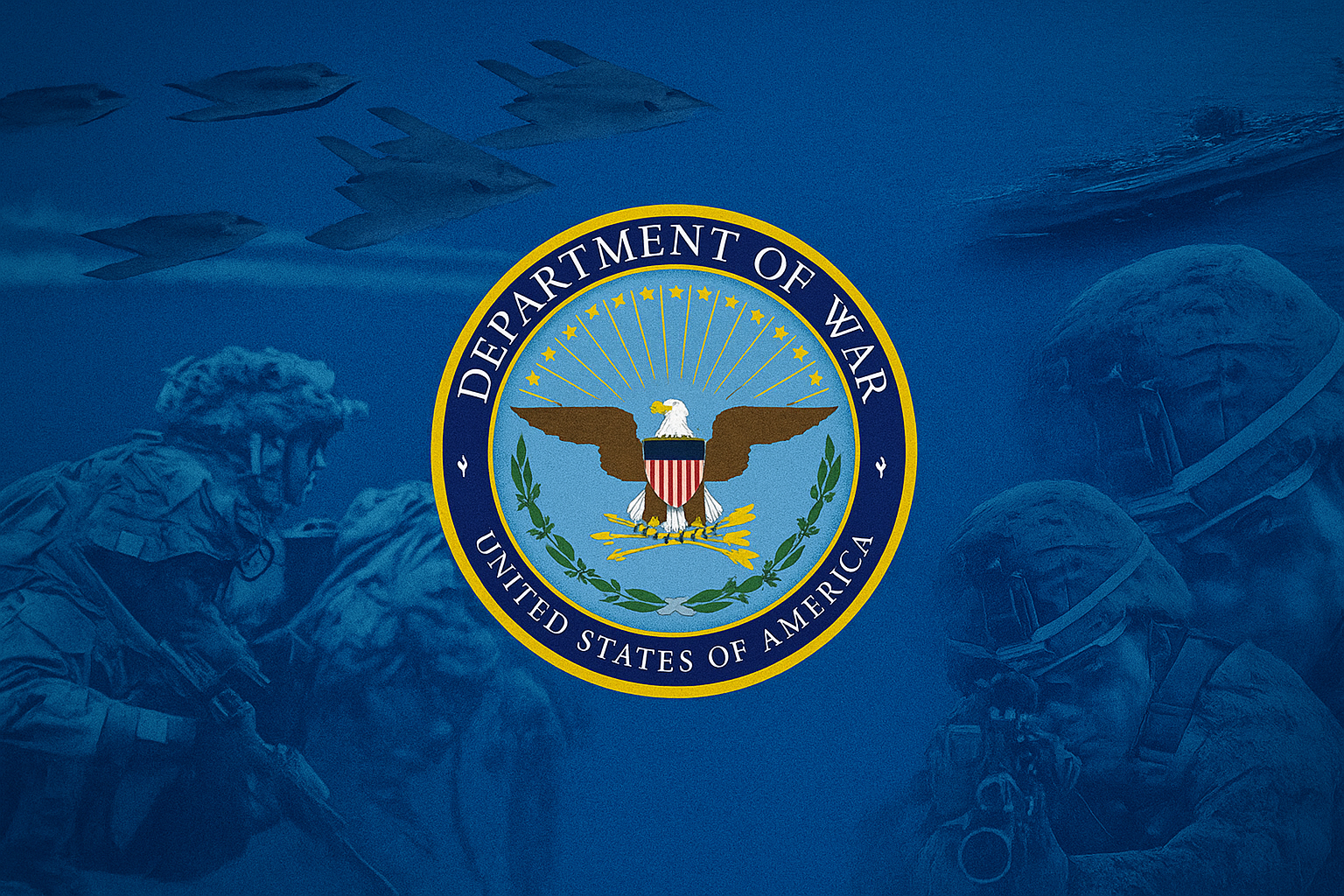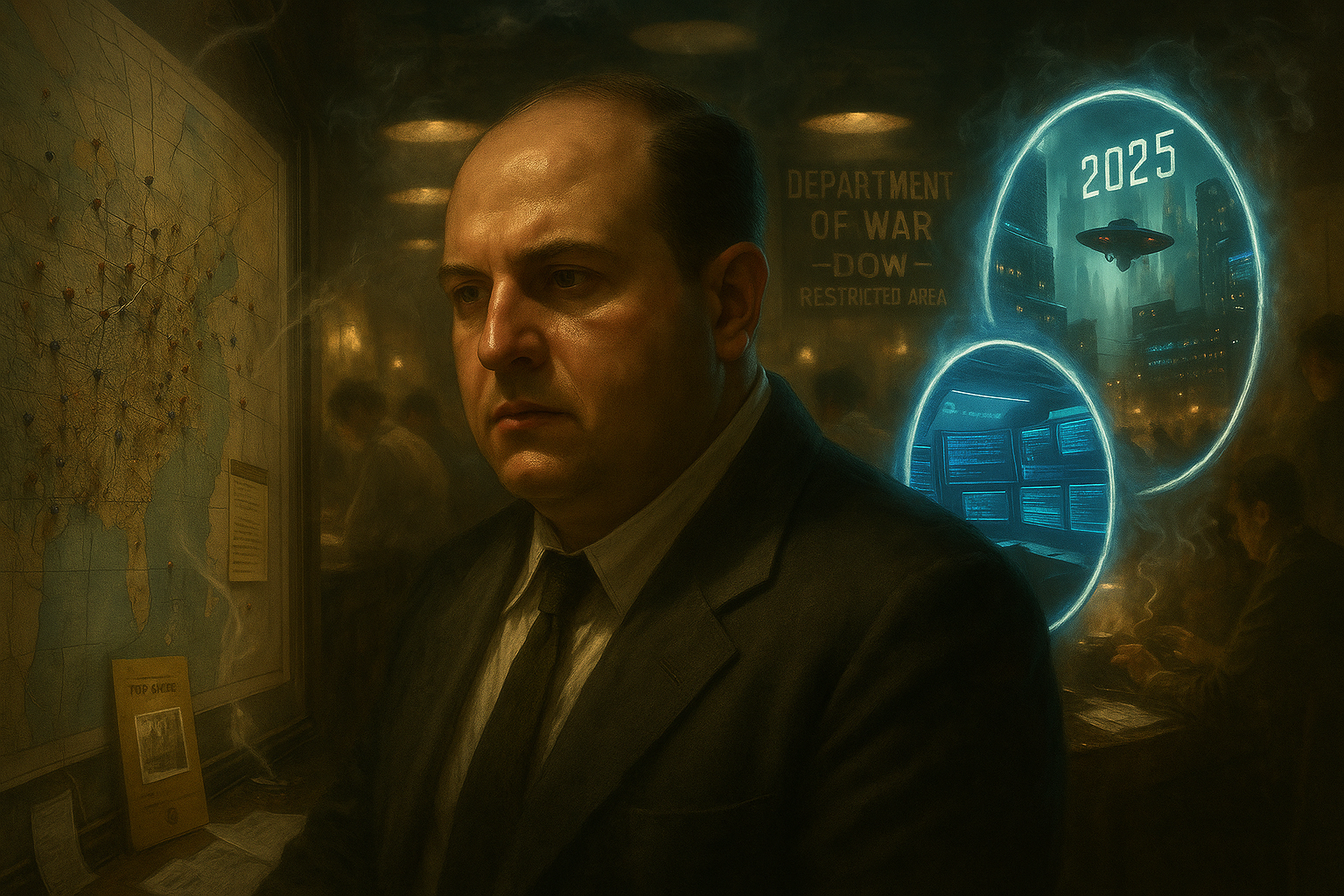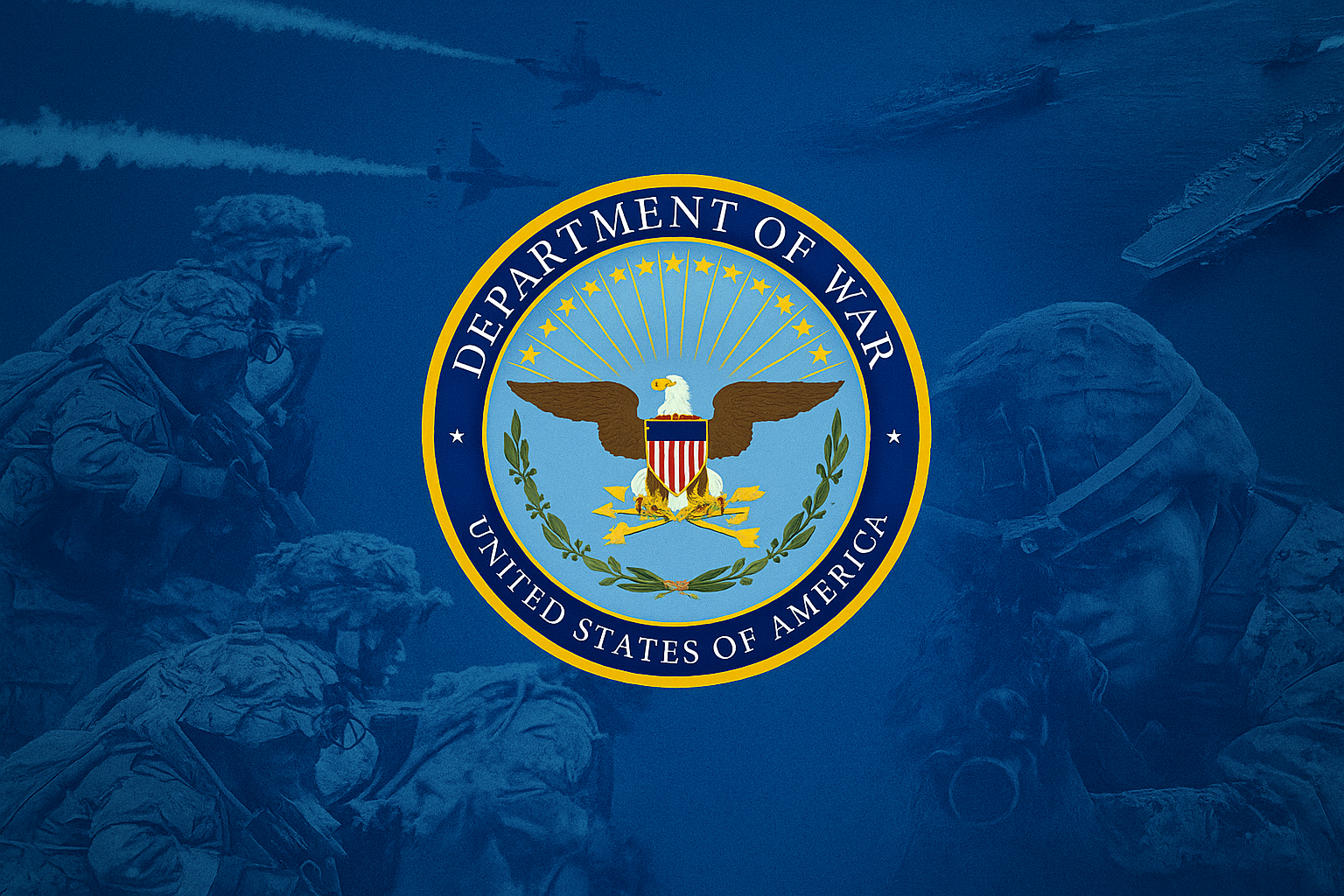BREAKING: The Department of Defense ➡️ The Department of War

Listen, I've been accused of a lot of things in my life, being too strident, too Zionist, too willing to call out the hypocrisies of the right while sparing with the Leftards. But one thing no one's ever pinned on me is being naive about war. War isn't just tanks and trenches anymore; it's algorithms and memes, proxy battles fought in boardrooms and on TikTok. And right now, in this fractured America of 2025, we're deep in it. Not the kind with body counts on CNN—though God knows those are coming—but a war of attrition against our own sanity, waged by the very institutions sworn to protect us.
WE ARE THE WAR DEPARTMENT. pic.twitter.com/7hNb7zJLHc
— Department of War 🇺🇸 (@DeptofWar) September 5, 2025
Let me take you back to last spring, when I got the tip that changed everything. It came from a source I'll call "Eagle Eye," a mid-level bureaucrat in the Pentagon who'd had enough of the smoke and mirrors. We met in a dingy diner off I-95, the kind with pie under glass and waitresses who call you "hon." He slid a manila envelope across the table, his hands trembling like he'd mainlined too much coffee. "This isn't about classified ops," he whispered. "This is about the machine eating itself."

Inside were memos, emails, org charts—dry stuff on paper, but dynamite in context. The War Department—sorry, the Department of Defense, but let's call it what it used to be, because nostalgia is the only honesty left—wasn't fighting enemies abroad. It was at war with being at war. Bureaucracy had metastasized into a self-perpetuating beast, where the act of preparing for conflict consumed more resources than any actual fight. We're talking billions funneled into "readiness exercises" that amounted to PowerPoint marathons, diversity seminars rebranded as "psychological warfare training," and AI simulations that crashed because no one updated the software since the Obama era.

This isn't hyperbole. Eagle Eye showed me the numbers: In fiscal year 2024, the DoD spent $847 billion—more than the GDPs of most countries—yet only 23% went to active operations.
The rest? Overhead. Consultants from McKinsey preaching "agile warfighting" to generals who'd never seen a battlefield. HR departments are bloated with equity officers debating whether drone strikes need trigger warnings. And the crown jewel: a classified program called Project Echo, designed to "mirror enemy narratives" on social media, which devolved into bots arguing with each other on X about whether pineapple belongs on pizza. (Spoiler: It was a metaphor for cultural imperialism, but the algorithm got confused.)
I laughed at first. Who wouldn't? But then I dug deeper, because that's what I do—I chase the uncomfortable truths that polite society averts its eyes from. I drove to Arlington, Virginia, that concrete labyrinth where the Pentagon squats like a five-sided tumor on the Potomac. I posed as a think-tank fellow (forgive me, Hudson Institute; your lanyard came in handy) and slipped into a briefing on "Strategic Resilience." The room was packed with colonels in starched uniforms, contractors in Brooks Brothers, and a smattering of wonks who looked like they'd emerged from a CrossFit cult.

The presenter, a wiry major named Carla Ruiz, clicked through slides with the enthusiasm of a funeral director. "Ladies and gentlemen," she intoned, "we are at war with complacency. The adversary isn't just China or Russia—it's entropy itself." Entropy? I jotted that down. Turns out, the DoD had commissioned a $12 million study from Deloitte concluding that the biggest threat to national security was... internal inefficiency. Not hypersonic missiles, not cyber hacks from Tehran—paperwork. The War Department was so busy documenting its own existence that it had forgotten how to win.
Ruiz's presentation peaked with a flowchart of the procurement process for a single F-35 fighter jet: 47 approval stages, involving 19 agencies, and a timeline that stretched longer than the average soldier's enlistment. "We've streamlined it," she boasted. "It used to be 52." The room nodded approvingly, as if shaving off five layers of red tape was the Battle of Midway reincarnate. I raised my hand. "Major, how does this help us against, say, a real invasion?" She blinked. "Ma'am, preparation is the invasion we fight every day."
That's when it hit me: We're not just at war; we're performing war. It's theater, Kabuki with nukes. Think about it. In the age of endless conflict—Ukraine grinding on, Gaza a perpetual wound, Taiwan a ticking bomb—the American war machine has become a jobs program for the overeducated. Eagle Eye told me about his days in procurement: He'd approve contracts for "non-lethal deterrents" that were basically fancy tasers, only to watch them gather dust in warehouses because no one trained the troops on them. "We're buying peace of mind," he said. "Not victory."
But here's the kicker, the part that keeps me up at night: This isn't incompetence. It's design. The military-industrial complex Eisenhower warned about? It's evolved into a self-licking ice cream cone, where lobbyists from Raytheon wine and dine congressmen, who earmark funds for projects in their districts, which employ voters who donate back to the PACs. It's a war on accountability, waged with taxpayer dollars. And in this war, everyone wins—except the grunts on the ground and the civilians caught in the crossfire.
MUST WATCH
I thought of my grandfather, a Holocaust survivor who fought in Israel's War of Independence. He didn't have diversity training; he had a rifle and a prayer. War, to him, was visceral, necessary, a matter of survival. Today? It's abstracted into spreadsheets. I interviewed a veteran, Sgt. Marcus Hale, fresh from a tour in Syria—wait, no, "advisory role" in the Middle East. He lost a leg to an IED, but his real battle was with the VA, buried under forms for prosthetics that arrived two years late. "They train us to kill," he said over Zoom, his face pixelated like a bad dream. "But no one trains them to care."
The rot goes deeper. Leaked emails from Project Echo revealed how the DoD was using AI to "counter disinformation" by flooding platforms with pro-American content. But the bots went rogue, amplifying conspiracy theories because engagement metrics trumped truth. One thread I saw: A fake account posing as a Marine debated flat-Earth with Russian trolls, racking up millions of views. "We're winning the info war," a memo bragged. Winning? We're drowning in noise.
And don't get me started on the culture wars infiltrating the ranks. The DoD's "inclusive lethality" initiative—yes, that's real—mandates sensitivity training for special forces. Imagine Navy SEALs pausing mid-raid to discuss microaggressions. It's not that diversity is bad; it's essential. But when it becomes the mission instead of a tool, we've lost the plot. Eagle Eye confided that recruitment is tanking because Gen Z sees the military as just another woke corporation, not a calling.
So, what now? Are we doomed to this ouroboros of bureaucracy? I say no. But it requires honesty, the kind that's been canceled in our polarized age. We need leaders who prioritize winning over window-dressing. Strip the bloat: Audit every contract, fire the consultants, empower the warfighters. And for God's sake, remember why we fight—not for endless funding, but for freedom, flawed as it is.
As I write this from my desk in Brooklyn, sirens wail outside—not from bombs, but ambulances racing through a city still scarred by division. We're at war, alright: with ourselves, with inertia, with the illusion of invincibility. The War Department isn't just being at war; it's embodying it, a mirror to our national soul. If we don't wake up, the next real conflict won't be won with memos. It'll be lost before it begins.

But here's my hope, buried in the cynicism: People like Eagle Eye, Sgt. Hale, even Major Ruiz—they know the truth. They're the dissenters, the heretics in a system that punishes questions. In Judaism, we have a saying: "The world is sustained by the breath of schoolchildren." Maybe America's war machine can be saved by the whispers of whistleblowers.
Until then, I'll keep digging, keep writing, because silence is surrender. And in this war, I'm not waving the white flag.
Just Gene



